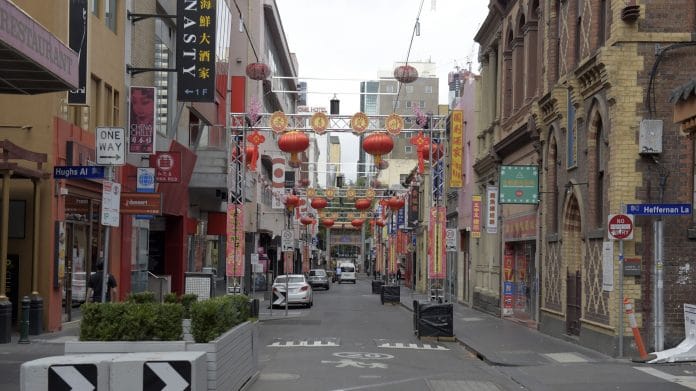London: Australia has canceled agreements between China’s Belt and Road Initiative and the Victoria state government, in a move that could further worsen ties between the two nations.
The Australian federal government scrapped both the memorandum of understanding and framework agreement signed between Victoria and China’s National Development and Reform Commission, Foreign Minister Marise Payne said in an emailed statement Wednesday. Two other deals between Victoria and the governments of Iran and Syria have also been scrapped.
“I consider these four arrangements to be inconsistent with Australia’s foreign policy or adverse to our foreign relations,” Payne said.
The bans are the first under laws passed by the national parliament in December that give the foreign minister the ability to stop new and previously signed agreements between overseas governments and Australia’s eight states and territories, and also with bodies such as local authorities and universities.
Payne’s move could further worsen ties between Australia and its largest trading partner, which have been in freefall for a year after the government called for an independent probe into the origins of the coronavirus. Beijing has since inflicted a range of trade reprisals, including imposing crippling tariffs on Australian barley and wine while blocking coal shipments.
No thaw
The announcement came the same day a Chinese diplomat indicated that there will be no immediate thaw in ties between Beijing and Canberra.
“We have done nothing intentionally to hurt this relationship, and we have seen too many incidents over the past few years in which China’s interest has been hurt,” Wang Xining, the Chinese Embassy’s deputy head of mission, told reporters Wednesday in Canberra.
The BRI deals with Victoria, the nation’s second-most populous state, aimed to increase Chinese participation in new infrastructure projects. They were signed between October 2018 and a year later.
While the Chinese Ministry of Foreign Affairs didn’t respond to a request for comment sent outside normal office hours on Wednesday, in August its spokesman Zhao Lijian said in Australia that his nation’s cooperation with Victoria on BRI had brought benefits to both sides.
“Australia should have an objective view of such cooperation and BRI, and not set up impediments for China-Australia cooperation,” Zhao said.
Research partnerships
The laws allow Prime Minister Scott Morrison’s government to block or curtail foreign involvement in a broad range of sectors such as infrastructure, trade cooperation, tourism, cultural collaboration, science, health and education, including university research partnerships.
Payne said Wednesday she had been alerted to more than 1,000 arrangements between foreign governments and Australia’s states and territories, local governments and public universities since the laws were enacted.
The law may still allow the federal government to review and overturn memorandums of understanding between Beijing and the state governments of Western Australia, South Australia and Tasmania in sectors ranging from investment, science cooperation and access to the Antarctic.
“I will continue to consider foreign arrangements,” Payne said. “I expect the overwhelming majority of them to remain unaffected.”- Bloomberg
Also read: Quad summit ‘mark of the momentum’, Australian PM Morrison says in hint to China






